Five prominent north-east voices have joined forces to speak about their experiences of online abuse and the toll it’s taken on their mental health.
A quick search of any celebrity’s name on social media can throw up all sorts of communications – some positive, and many negative.
Often users write these while giving no thought to the potential consequences of their actions.
In some cases it’s prompted the likes of ITV to step in, reminding Love Island viewers that contestants can see the comments left on social media after the show.
But this behaviour also affects people in less high-profile professions.
We’ve spoken to a range of contributors from various walks of public life to hear their encounters with online abuse.
We’ve kept them all anonymous, referring to them only by job title, to highlight how their experiences will be shared by many others in their line of work.
The Broadcaster
“They want to vent at something – and you’re an easy target.”
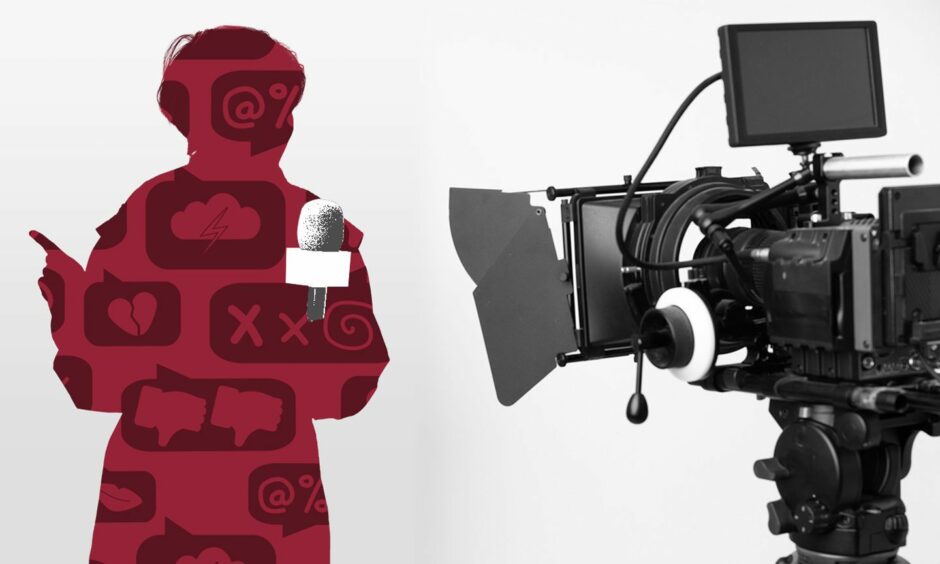
Most people don’t say anything, because that’s the way it tends to work with social media – there’s not that many people in proportion to those that might be watching or listening.
It doesn’t matter if it’s 99% good and 1% bad – you always remember that one.
It sticks with you and it affects your mood, your mental health, your confidence.
And it’s not just for that show, but the next. It’s ongoing and can have a long-term effect where you’re looking out for the negatives, and you start that cycle.
I find it amazing that some people either don’t think you’ll see it – we’re not celebrities, we’re just presenters – or they’ll want you to see it, which is even weirder.
I have to remind myself that, to put comments like that on there in the first place, you’ve got to be in a pretty bad place.
You can just switch it off if you don’t like it.
They want to vent at something and you’re an easy target because they can hear you or see you, and they’re behind a computer.
But people don’t realise the impact that can have.
The Musician
“I love what I do for a living – they’re anonymous trolls stuck to their keyboards.”
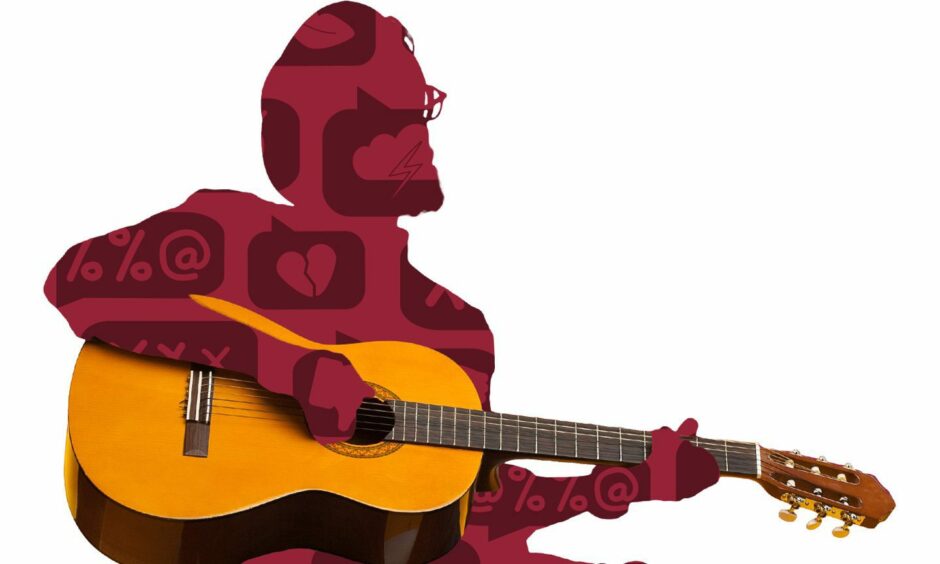
I receive a lot of hate on social media – sometimes because someone doesn’t like what I stand up for ethically, and sometimes because they see others giving hate, contributing to the pile-on.
The type of music I make can be political and, while debate and differing views are extremely valid and important, I don’t appreciate being sent hate.
When people say “you can’t sing”, I find it easy to brush off, because I know that I categorically can.
But when someone hones in on my appearance it does begin to affect my self-esteem.
Most of the time, the hate I’m getting is because of the way I sing, or because I speak up about what I believe in.
They don’t care about how I feel, they just want a pile-on toward anyone they feel is the enemy.
I do try to block it out and compartmentalise it, although there have been times where physical threats towards me have been made.
When I step back and remember that I am out there, being public and doing what I love for a living – and they are anonymous trolls stuck to their keyboards – I feel a little better.
The Politician
“Never engage – that’s what they want.”
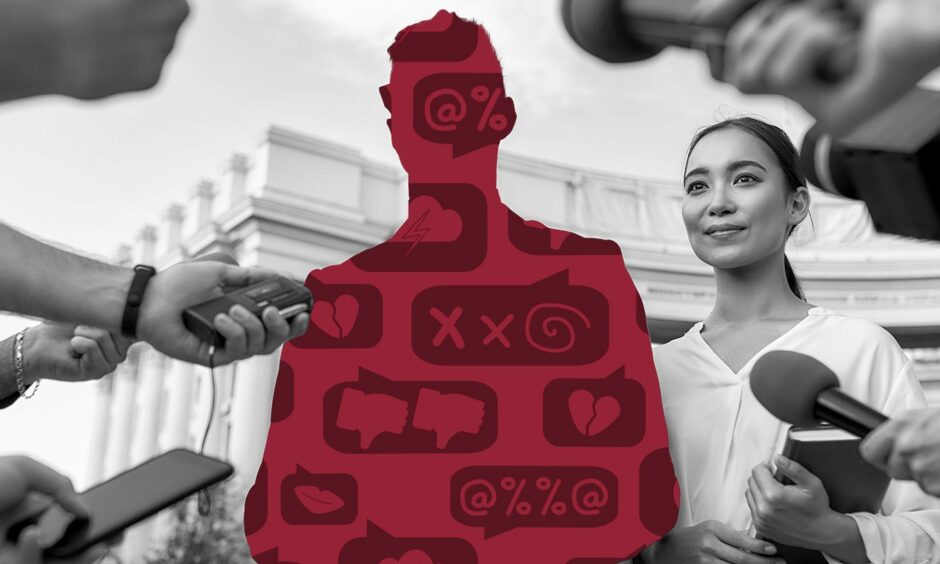
Obviously most of the abuse is related to my politics and you can handle that as an inevitable part of the job.
On occasion it has been personal and even making mention of family members and that is far harder to take.
One particular abusive person used multiple accounts and, over a period of 18 months, started to make it clear they knew where I’d been and mentioned my family. That’s when I had to call the police.
That made me feel anxious, but some of my colleagues get far, far worse and much more often.
I’ve been relatively fortunate compared to them. I probably don’t see even a fraction of the abuse.
I instantly mute abusers. And if it’s particularly bad, I block people completely.
The best advice I can give is to have your settings so that you only see comments from people you follow. Then the abusers don’t get any of your headspace.
I never ever engage with abusive comments – that’s what they want.
The Former bodybuilder
“I used to get DMs telling me I looked disgusting.”
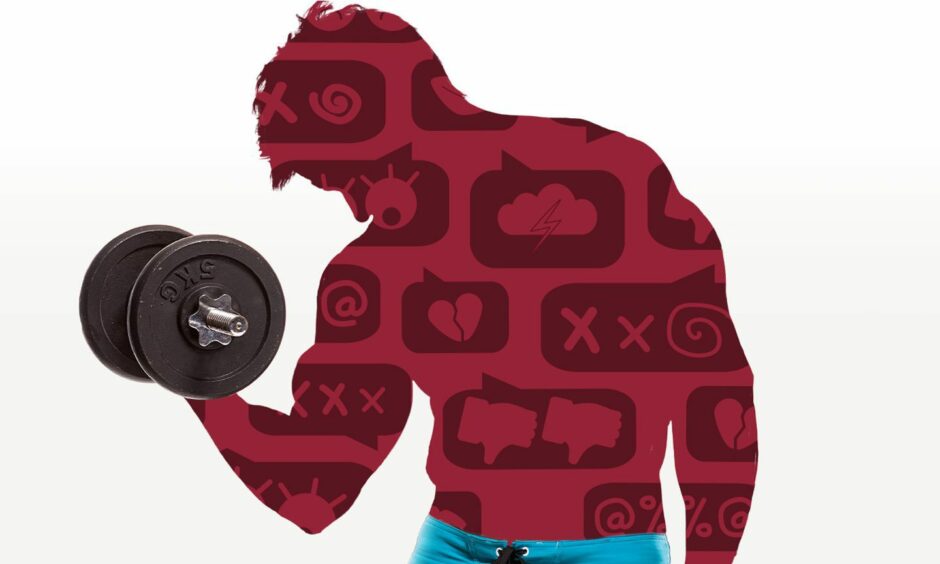
I used to receive DMs on Instagram from males and females about how disgusting I looked.
These were some people I knew and some I didn’t know at all.
At the time I was very young and vulnerable. I didn’t have a great relationship with my body and I was going through a bodybuilding process which was mentally tough for me.
I was working so hard on my figure to compete.
To be constantly told how disgusting you look makes you question why you do it.
I also couldn’t understand why people would feel the need to reach out and say these things.
Hearing from so many men how disgusting you look makes you feel as though everyone is thinking that.
As time goes on I’ve learnt the simplest way is to block and delete.
We do play a role in what we receive and if we put the images out there we have to expect the consequences of other people’s actions.
But I do believe it played a role in me giving up bodybuilding and subconsciously these comments did influence my decision.
I struggled to come to terms with how I wanted to look and it took years for me to develop a relationship with myself in which I did not value the opinions of others.
The Artist
“It’s always in my mind it’s not me they’re trying to hurt.”
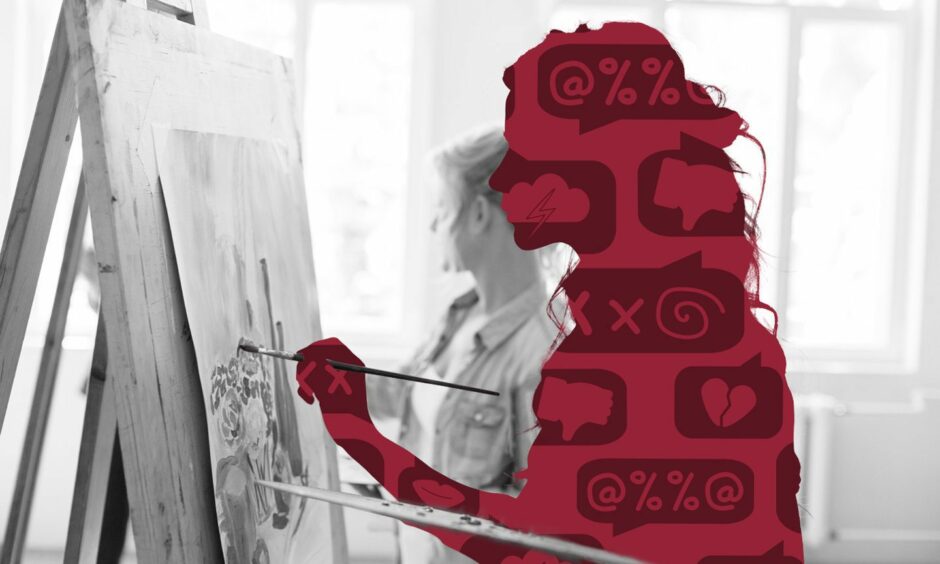
When it happens, I just try and bring the banter on.
Some people will just criticise, criticise, criticise. “Why are you doing this? You should be so much better at this at your age.”
But if I put something up on Instagram or my portfolio, who’s going to tell me it’s not up to scratch? Obviously there’s always room for improvement, but it’s finished to me.
My upbringing was centred around “whatever somebody says to you, it’s not who you are”.
People can call you names and make fun of you, but it all comes back to how they’re feeling and the situation they’re in, like if they’re having a rough time at home.
It’s always in my mind it’s not me they’re trying to hurt. They’re just trying to get that out and cope with what’s going on in their life.
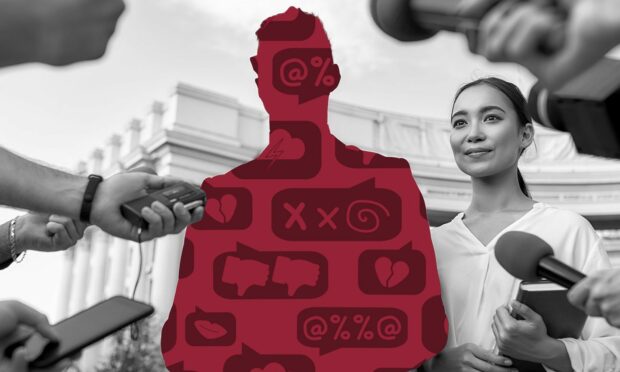
Conversation